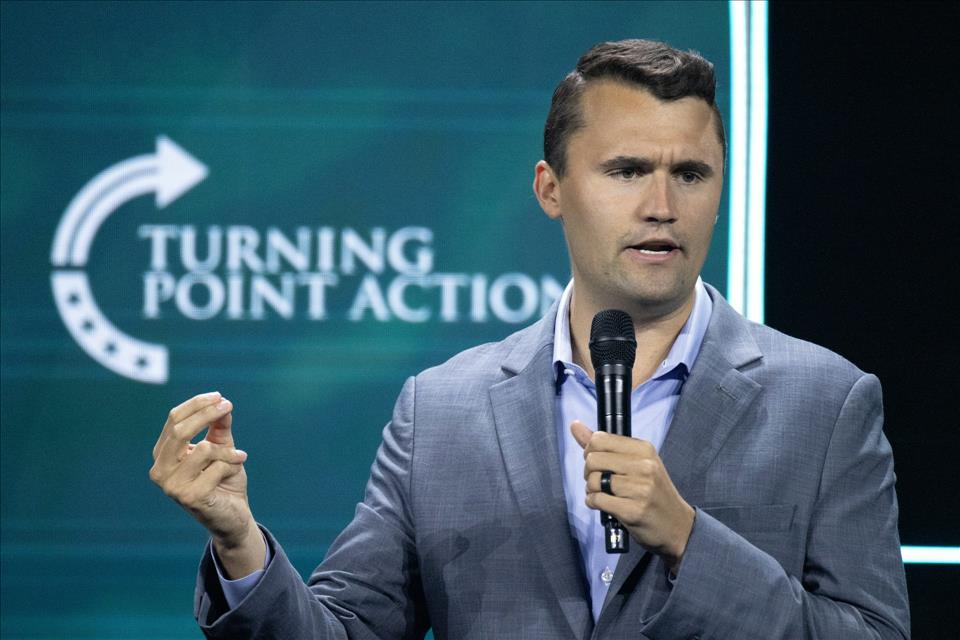Charlie Kirk: Why The Battle Over His Legacy Will Divide Even His Most Ardent Admirers
Many commentaries on Kirk's life will focus on his significance as a political activist and the important – some would say decisive – role he played in turning out the youth vote for Trump's presidential election victory in 2024. But it is important to recognise how significant he had become as a public leader for what a growing number of scholars have referred to as white Christian nationalism .
While there is some variation in political views and theological beliefs among white Christian nationalists, a central, shared conviction is that the US was originally established as a Christian nation. For Christian nationalists, the idea of the separation of church and state is taken to refer only to not having an official state church. The complete separation of Christianity from public institutions is anathema and secular institutions such as public schools and universities are often regarded as hostile ground.
Given their view of America's original religious calling, many Christian nationalists therefore believe that secular, liberal society is in terminal crisis. So America will only be put right when it returns to Christian laws or principles. This view of political disagreement is inherently binary. There are those who trust in God and support God's work to transform society. Then there are those who oppose it. These people are mired in spiritual darkness.
Kirk's Christian nationalist views and activism were not always comfortable watching. For example, along with others on the Christian right, Kirk publicly and vehemently challenged the place and legacy of Martin Luther King Jr, a hugely honoured figure in the US. In 2024, he chose the week in which the US celebrates a national holiday in honour of the murdered civil rights leader to label King“a serial adulterer, an alleged rapist, a reparations proponent, and a race Marxist”.
His organisation, Turning Point USA, also created Professor Watchlist . This online resource encouraged conservative students to name and shame college professors who had what were judged to be problematic views or activism linked to categories including“antifa”,“socialism” and“feminism”.
But while there is an element to white Christian nationalism which risks overturning basic democratic principles (as shown by the insurrection of January 6 2021 ), Kirk also had a better legacy. He became widely known on social media for his roadshows on college campuses which invited students to debate with him. He would put forward his views robustly, but also listened to his opponents.
These roadshows could be challenging for more liberally inclined students unused to having to defend their views. But at their best they provided surprising opportunities to find common ground. In one filmed discussion , for example, a feminist student had an engaged and respectful discussion with Kirk about his views about essential differences between men and women. They also agreed about the harmful effects of some forms of masculinity and the normalisation of pornography in youth culture. He maintained this commitment to these open public events despite the risks involved. It ultimately cost him his life.
Charlie Kirk debates a student. Debate over Kirk's legacy
This ambivalence between conflict and democratic engagement in Kirk's work and the wider Christian nationalist movement is now finding expression in responses to his murder. On Fox News , as news of his death broke, shocked and distressed reaction nonetheless highlighted an interesting divide in the commentary. There were those who wanted to see this a turning point in the battle against the side of evil, the people who opposed his Christian mission. But others saw in his legacy a commitment to engagement and debate with those whom he disagreed with.
It remains to be seen which side of this legacy wins out. It should be observed, however, that much of Kirk's following takes its cues from the current incumbent of the White House, whose instinct is usually to lean into division. And it was not different when the US president expressed his grief and anger at Kirk's assassination, blaming the“radical left” for rising political violence in the US.
Most of the American people are neither ardent liberals nor committed Christian nationalists . But there is an ever-deepening political divide between those on the political left and right who no longer see each other as decent, trustworthy fellow citizens. As the political scientists Steven Levitsky and Daniel Ziblatt have argued , such polarisation is often a route to the death of true democracy.
At this moment of crisis, America – and the watching world – need to hope and work hard to ensure that Kirk's legacy of democratic engagement and debate wins out. If this does not happen, the future for America is looking bleaker today.

Legal Disclaimer:
MENAFN provides the
information “as is” without warranty of any kind. We do not accept
any responsibility or liability for the accuracy, content, images,
videos, licenses, completeness, legality, or reliability of the information
contained in this article. If you have any complaints or copyright
issues related to this article, kindly contact the provider above.
Most popular stories
Market Research

- Japan Buy Now Pay Later Market Size To Surpass USD 145.5 Billion By 2033 CAGR Of 22.23%
- BTCC Summer Festival 2025 Unites Japan's Web3 Community
- GCL Subsidiary, 2Game Digital, Partners With Kucoin Pay To Accept Secure Crypto Payments In Real Time
- Smart Indoor Gardens Market Growth: Size, Trends, And Forecast 20252033
- Nutritional Bar Market Size To Expand At A CAGR Of 3.5% During 2025-2033
- Pluscapital Advisor Empowers Traders To Master Global Markets Around The Clock






















Comments
No comment